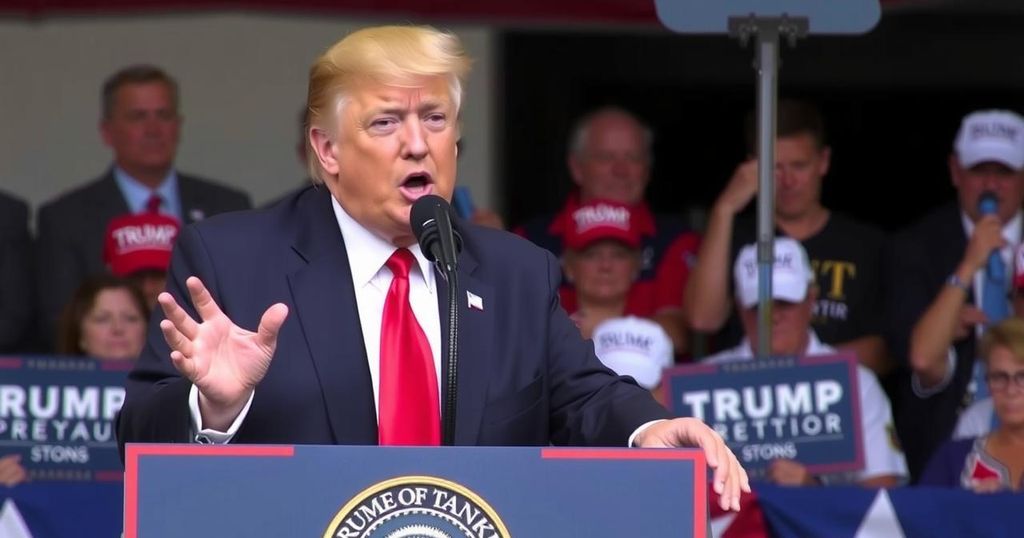Donald Trump, at his first rally since winning the presidency, proposed exploring the possibility of regaining control of the Panama Canal, criticizing the current fees imposed on shippers. He expressed confidence in his administration’s agenda to enhance the economy and secure borders while emphasizing Republican unity. Trump’s comments reflect dissatisfaction with past U.S. decisions and aim to address economic grievances connected to international trade.
Donald Trump, during his first significant rally since attaining the presidency, proposed that his forthcoming administration might seek to regain control of the Panama Canal, which the United States relinquished in 1999. Speaking to a large gathering at Turning Point USA’s AmericaFest in Phoenix, Arizona, he criticized the current management of the canal and its associated shipping fees, labeling them as “ridiculous” and decrying the original decision to transfer control as a “foolish” act.
In an atmosphere of enthusiastic support among conservatives, Trump communicated a confident outlook for his administration, vowing to bolster the economy, secure U.S. borders, and rapidly address ongoing conflicts in the Middle East and Ukraine. He remarked, “I can proudly proclaim that the Golden Age of America is upon us” and expressed aspirations to unify the country while highlighting a shift in Democratic confidence post-election.
The rally underscored Trump’s influence within the Republican Party, particularly through Turning Point’s active grassroots campaigns, which have appealed to younger and minority voters. Trump also introduced Stephen Miran as his prospective head of the Council of Economic Advisers and acknowledged significant financial support from Australian billionaire Anthony Pratt toward his inaugural fund.
Regarding the Panama Canal, Trump emphasized that when he assumes office, the alleged financial exploitation regarding passage fees will cease. He alluded to the possibility of the canal being “returned to the United States of America in full and without question,” although he did not elaborate on the feasibility of such a proposal.
The Panama Canal is a critical waterway that connects the Atlantic and Pacific Oceans and facilitates international maritime trade. The United States transferred control of the canal to Panama in 1999 following a treaty signed during Jimmy Carter’s presidency in 1977. The canal has become vital to Panama’s economy, generating a significant portion of the national revenue. As environmental challenges such as drought have impacted its operation, the fees for using the canal have seen a rise, leading to discussions about its economic management and control. Trump’s remarks resonate with a segment of the audience that views the original U.S. relinquishment of the canal as detrimental.
In summary, Donald Trump’s statements during his rally reflect a strong commitment to reasserting U.S. interests in international trade and a desire for unity within the Republican Party. His remarks regarding the Panama Canal reignite a historical debate over U.S. sovereignty and control of vital assets. Trump’s approach signals a focus on economic revitalization and explores political strategies that involve both grassroots movements and influential donors. As Trump prepares to take office, his plans to reshape various sectors will be closely scrutinized amidst ongoing political challenges and public debates.
Original Source: www.pbs.org






